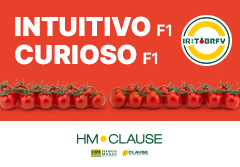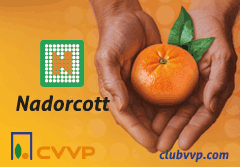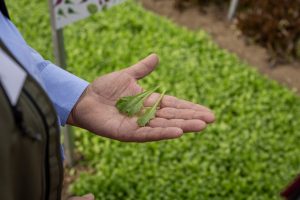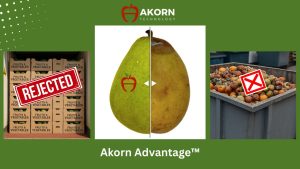What do you think is the most relevant finding of the study, and what’s your interpretation from your dual role as Committee Chair and CEO of UNICA?
The study shows a 4.5% growth in the mass consumption sector, partly due to increased consumption (+6% in volume in the case of vegetables) and also due to higher value. For me, the most positive takeaway is the rise in kilos sold. Although we are still well below the Harvard plate recommendations—we’re at just over 30%—we’re inching closer to the 50% goal. Despite the general downward trend, we are still exporting a bit more. After COVID, Brexit, and Trump… the sector has proven resilient. It’s a message of hope: we must keep working. The sector could grow at double-digit rates for five years if we do things right.
What risks and opportunities do you see in the current political and commercial context?
Europe remains a stable market, and that’s a lifesaver for us. Almería, Murcia, and Granada export around 80%, so the opportunity is clear. Geopolitical risks like Trump’s tariffs do affect us, but to a lesser extent. Other factors, such as the nationalisation of consumption or rising costs, could be very relevant.
What’s your opinion on the EU-Mercosur agreement?
Mercosur must be approached cautiously, and on a case-by-case basis. It depends on the product. Leafy greens and fresh vegetables are less affected; fruit like melon or cherries are more exposed. I think the EU needs to reassess its trade approach.
RELATED NEWS: Who will pay the price?
Agriculture can’t always be the bargaining chip—maybe because we don’t lobby as effectively as other sectors. If we open borders, it must be under equal conditions. Otherwise, we could disappear from the shelves, compromising our food sovereignty. We’ll be keeping a close eye on this.
The sector often complains about overregulation. In your view, which regulation most affects competitiveness?
While sustainability is absolutely essential, some regulations have gone too far. We need to strip away the ideology and focus on science. Plastic is the clearest example. If it’s recycled properly, it can be more sustainable than other materials, and for some uses there’s no better substitute. In other areas of life, we’re very tolerant of plastic—like when you buy ham and every slice is wrapped—yet with fruit and vegetables we face intense scrutiny. We need common sense and to consider food waste and safety. I support action only when there’s a viable alternative—not as a reaction or political move.
The sector grew by 5.3% in volume and 11% in value in the first quarter. Is this uptick a lasting trend or just a blip?
It’s temporary, but we’ve got the wind at our backs, and the sector should take advantage. That means empowering associations, cooperatives, institutions, FEPEX, AECOC… and investing in marketing and lobbying so the trend becomes permanent. If the sector thrives, everyone wins—people improve their health and we secure Europe’s food sovereignty.
What role is domestic consumption playing in this recovery?
Spain, once almost a secondary market, has become a top-tier value. National retailers like Mercadona, Lidl, and regional supermarkets are betting on local products and innovating. They have Europe’s top producer at home and are pushing us to keep pace, which is good for everyone.
Is there any industry you consider a benchmark?
If we’re talking models, the ultra-processed food companies are brilliant at marketing and lobbying. They’re experts at turning cheap agri-food commodities into high-value products—50% of the shopping basket in value terms. They join forces, present a united front to ministries, and run joint campaigns. They’ve managed to make nutritionally poor products seem healthy. We should adopt their approach because, unlike them, we’ve got both a compelling story and solid facts.
What strategies are needed to reverse the low fruit and vegetable consumption among Gen Z and Gen Alpha?
Some young people reject fruit and veg almost ideologically—it’s tied to their identity. To change that, we need education, marketing, and lobbying. The Ministry of Consumer Affairs has already removed ultra-processed foods from schools. If we’d relied on education alone, it would’ve taken 30 years. We must lobby harder: there shouldn’t be vending machines with ultra-processed snacks in universities or hospitals. We need to be as attractive as our competitors, building powerful stories backed by data.
Is the sector fully leveraging innovation to connect with new consumer habits?
There’s still a long way to go. We’re very active in genetic innovation, but when it comes to the last mile—how the product reaches the consumer—we’re stuck. Supermarket shelves haven’t changed in 20 years. We need more innovation and to stay alert to future changes.
What role should ‘Brand Spain’ play in European fresh produce leadership?
Spain should lead in production and lobbying at the EU level—but without obsessing over putting the national flag on every product. It works for some items, but the key is building strong customer relationships and winning shelf space. This isn’t a flag war, though I do envy countries where flag branding isn’t a handicap in certain markets.
What should be the priorities of AECOC’s Fruit and Vegetable Committee?
To boost consumption and value of fruits and vegetables through collaboration between producers and retailers. It’s a unique forum for open and transparent dialogue. We must keep it that way, but go further—deepening collaboration and viewing each other as partners, not competitors or enemies. I’m very optimistic about the sector. We’ve got tailwinds, opportunities in innovation, food security, sustainability… and we must get on board with greater commercial scale, cooperation, marketing and lobbying. That’s what the sector—and humanity—needs.




















